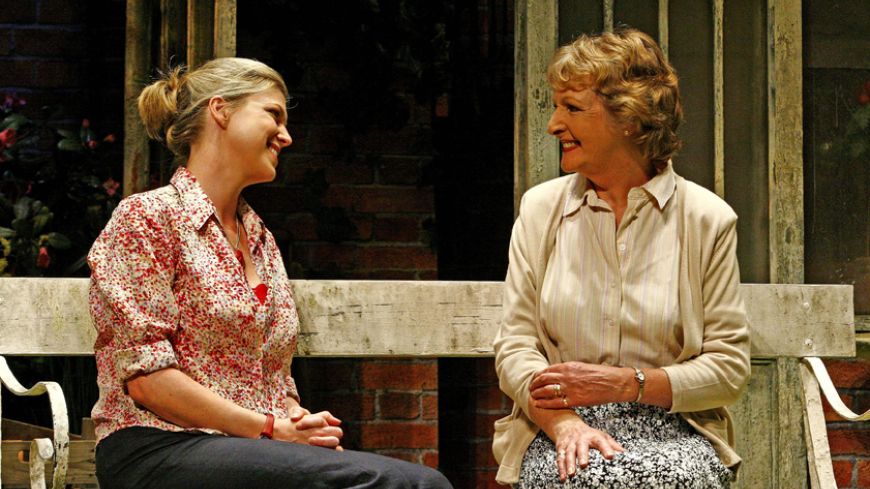
In the packed house of Bath's small but perfectly formed Theatre Royal, where it was a delight to see most of the audience dressed up for the occasion even on a Wednesday night, the curtain rose to the realistic scene of an English rectory's country garden.
Here we find Grace, played with astute dry delivery by Penelope Keith, who is seen dealing with her recent widowhood with flat-footed pragmatism, like a (Southern) character from a Victoria Wood sketch.
She has started to belie her name by behaving disgracefully, seemingly enjoying being a grumpy old woman who at last can show healthy irreverence to whatever takes her fancy, now she is free of the restraints of being the Vicar's wife. Her missionary sister, Ruth, is home to lend support and their old sisterly dynamics and rivalries soon come to the fore. Their relationships are tested to the limit after some highly disconcerting revelations and all the characters have to re appraise their lives.
The rather twee middle class atmosphere and setting belies this play's message of dealing with family secrets and lies. It is full of wit and double entendres, but again this levity is a comic mask for the serious issues of relationships, communications and compromises that the play is dealing with. Grace, for all her ‘difficult' and forthright behaviour is shown, in spite of her apparent narrow background, to be a modern version of Jan Struthers's Mrs Miniver, with an insight to the plight of others less fortunate and some healthily cynical views including a certain PM whom she describes as a ‘dictator with bosoms'.
With lies growing as fast as the ivy on the walls, the characters have to face up and deal with the realities of coming to terms with behaviour that requires putting faith into action by finding forgiveness and moving on with their lives and relationships. While all this was performed with wit and elements of farce, it can be no accident that a large weeping willow was a prominent symbolic feature of the set.
This deceptively profound comic play, whose line ‘Songs of Praise on acid' could be a self referential description, was both well cast and well performed; was thoroughly absorbing and entertaining. It was a pleasure to see a well known, very English actress, Penelope Keith, in a very English town in an apparently very English play that surprised and delighted with its ability to shake preconceptions.
The Bishop of Liverpool wrote a piece in the programme explaining the source of the play's title. It comes from Hebrews 13:2:
"Be not forgetful to entertain strangers: for thereby some have entertained angels unawares".
Another name for an angel is a messenger. With an open mind, the audience may well feel they can take the message of the play like the white feather that appears at the end indicating that an angel had indeed been in their presence.
Bath dates 22-26 September
Kings Theatre Edinburgh 19-24 October

